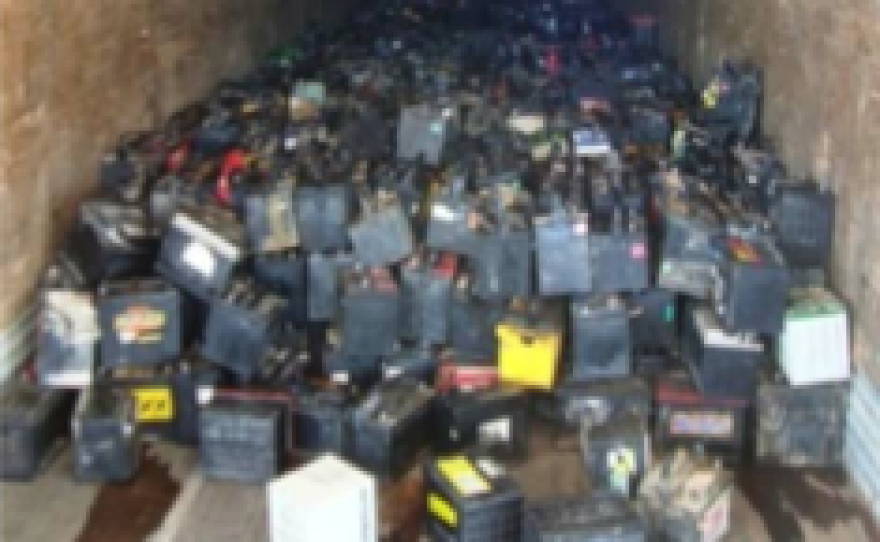American companies have sent more spent lead batteries for recycling to Mexico in recent years, according to a draft report by the Commission for Environmental Cooperation, the watchdog group created by the U.S., Mexico and Canada to respond to environmental concerns stemming from North American free trade.
That trend may be attributed to several factors, including more stringent U.S. environmental rules for lead battery recycling, the proximity of lead recycling facilities south of the border, and lower labor costs in Mexico, though the CEC said more data is needed to determine the exact reasons.
Exports to Mexico grew from 130 million pounds in 2004 to 750 million pounds last year, according to the report, which recommends that Mexico bring its environmental regulations up to more stringent standards.
The report was overseen by CEC director Evan Lloyd, whose term expired last week. Irasema Coronado is the organization’s new director, and says the surge in batteries being sent to Mexico leaves the country vulnerable to contamination because of its lagging environmental rules.
“They need to improve that regulatory framework,“ Coronado said.
The report also urged the U.S. to implement more detailed reporting requirements for companies exporting lead batteries abroad, so that countries can better track how the hazardous materials are being disposed of.
Beyond North America, the report also found companies exporting lead to countries which the U.S. has no permission to do so, a violation of international agreements.
The CEC is accepting comments on its draft report until Dec. 21.
EDITOR'S NOTE (12/4/2012): This story originally reported the CEC study found more stringent U.S. environmental rules to be the main reason behind greater U.S. lead battery exports to Mexico. The study did not conclude that definitively, but cited it as only one possible factor pending further analysis.







